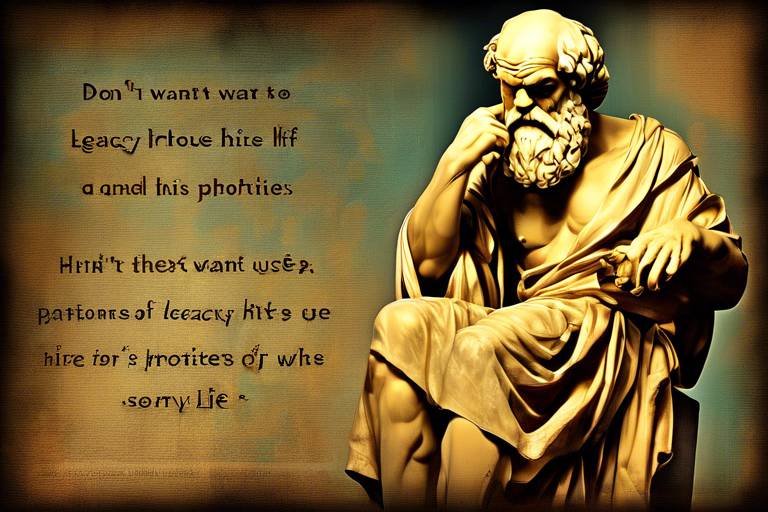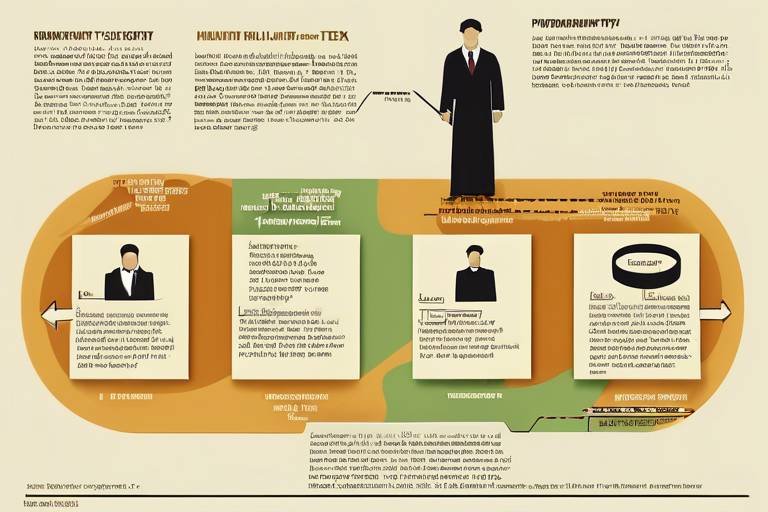American Pragmatism - John Dewey's Influence on Education
In the landscape of educational theories, few names resonate as profoundly as John Dewey. His contributions to the field of education are rooted deeply in the philosophical movement known as American pragmatism. This article explores how Dewey's ideas have not only shaped modern educational practices but also emphasized the importance of experiential learning and community involvement in the learning process. By diving into the core principles of pragmatism and Dewey's educational philosophy, we can uncover the transformative impact he has had on how we view education today.
To understand Dewey's influence, it is essential to grasp the foundations of pragmatism itself. Emerging in the late 19th century, pragmatism was a response to the rigid philosophical traditions of the time. Key figures like Charles Sanders Peirce and William James laid the groundwork for this movement, advocating for a philosophy that prioritizes practical consequences and real-world applications over abstract theorizing. Dewey, as a prominent pragmatist, took these ideas and applied them to education, arguing that learning should be a dynamic and interactive process. He believed that education must evolve alongside society, preparing individuals to engage with and contribute to their communities.
Dewey's educational philosophy is a rich tapestry woven with threads of social interaction, experience, and critical thinking. He viewed education not merely as a means to transmit knowledge but as a social process that fosters community and personal growth. For Dewey, the classroom should be a microcosm of society, where students learn to think critically and solve problems collaboratively. This approach encourages students to become active participants in their own learning journeys, rather than passive recipients of information.
At the heart of Dewey's philosophy is the concept of experiential learning. He argued that true understanding comes from engaging with the material in a hands-on manner. Rather than relying solely on textbooks and lectures, Dewey championed the idea that students should immerse themselves in real-world situations. This method not only makes learning more relevant but also equips students with the skills they need to navigate the complexities of life. For instance, a student learning about ecology might benefit more from participating in a community garden project than from reading about environmental science in a classroom. This approach invigorates the educational experience, making it more engaging and impactful.
Dewey's principle of learning by doing emphasizes the necessity of practical engagement in education. Imagine trying to learn how to ride a bike by only reading about it; you would likely struggle to grasp the nuances of balance and coordination. Similarly, Dewey believed that students learn best when they can apply their knowledge in practical settings. This method not only promotes deeper understanding but also enhances the retention of knowledge. When students actively participate in their learning, they are more likely to remember and utilize that information in the future.
Another crucial aspect of Dewey's philosophy is the role of reflection in experiential learning. Dewey posited that critical self-reflection is essential for personal growth and enhancing the learning experience. After engaging in hands-on activities, students should take the time to reflect on what they learned, how they felt, and how they can apply this knowledge moving forward. This reflective practice fosters a deeper connection to the material and encourages students to take ownership of their learning. It’s akin to looking in a mirror; it allows learners to see their progress and identify areas for improvement.
Dewey's vision extended beyond the classroom; he believed that education plays a vital role in sustaining a healthy democracy. He argued that schools should prepare individuals for active participation in democratic society. Education, in his view, is not just about individual success but about cultivating informed citizens who can engage thoughtfully with the world around them. Schools should be places where discussions about social issues are encouraged, and students learn to respect diverse perspectives. This democratic ethos is integral to Dewey's educational philosophy, as he saw education as a means to foster social responsibility and civic engagement.
Central to Dewey's ideas is the significance of community in education. He advocated for collaborative learning environments where students can work together to solve problems and learn from one another. This approach not only enhances the educational experience but also prepares students for the collaborative nature of the workplace and society. By fostering strong connections within the classroom and the broader community, Dewey believed that education could nurture social responsibility and collective problem-solving skills.
Dewey emphasized the importance of collaborative learning environments as a cornerstone of his educational philosophy. In these settings, students engage in teamwork and peer interactions, which enhance their learning experiences. Imagine a classroom where students work together on projects, share ideas, and challenge each other's thinking. This kind of collaboration not only deepens their understanding of the material but also prepares them for the complexities of real-world challenges. By learning how to communicate and cooperate with others, students develop essential skills that will serve them throughout their lives.
Finally, Dewey's concept of social responsibility in education encourages students to engage with their communities and contribute positively to society. He believed that education should instill a sense of duty and commitment to the common good. By participating in community service projects or civic engagement activities, students can see the impact of their actions and develop a sense of belonging. This focus on social responsibility not only enriches their educational journey but also cultivates compassionate and engaged citizens who are ready to make a difference in the world.
- What is American pragmatism? American pragmatism is a philosophical movement that emphasizes the practical consequences of ideas and the importance of experiential learning.
- How did John Dewey influence education? John Dewey influenced education by advocating for experiential learning, critical thinking, and the importance of community in the educational process.
- What is experiential learning? Experiential learning is a hands-on approach to education where students engage directly with the material, allowing for deeper understanding and retention.
- Why is community important in education? Community is important in education because it fosters collaboration, social responsibility, and prepares students for active participation in society.
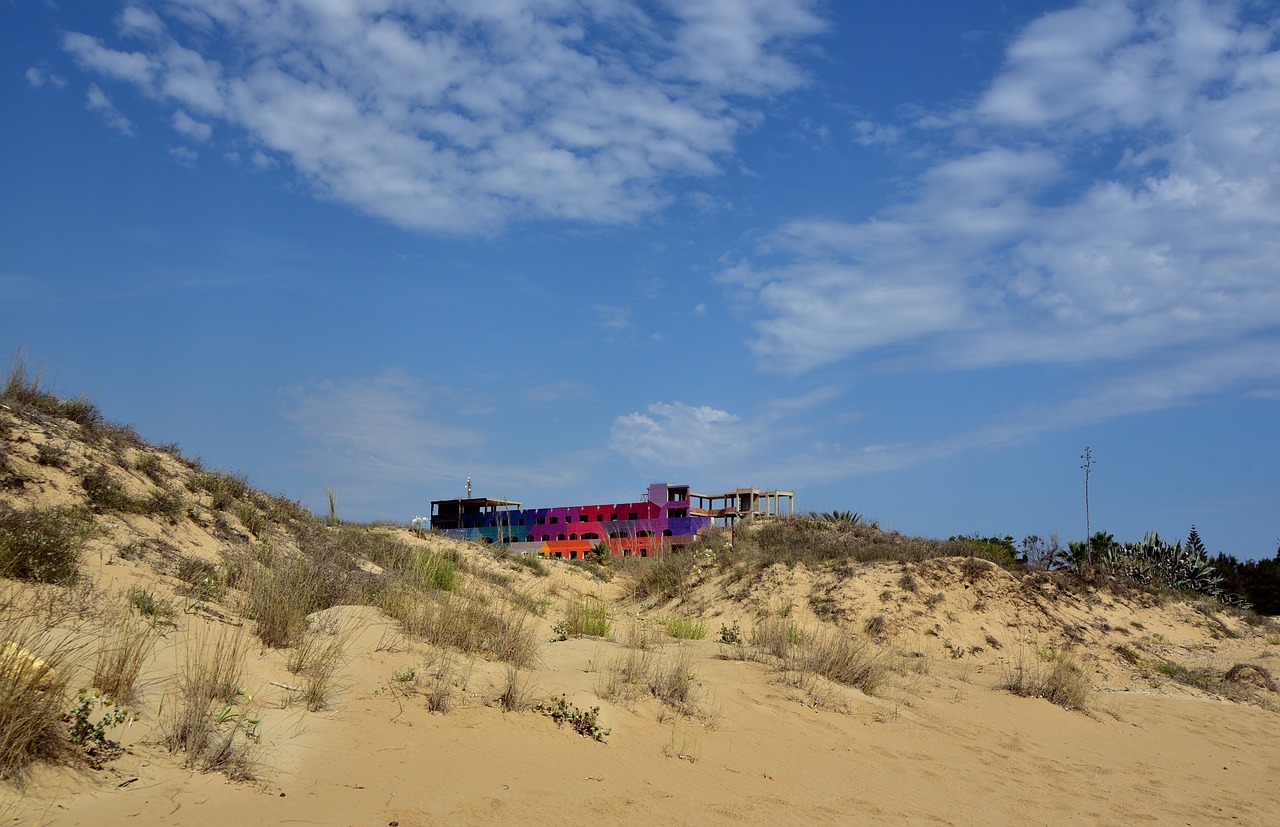
The Foundations of Pragmatism
Pragmatism, as a philosophical movement, emerged in the late 19th century, primarily in the United States, and has since evolved into a significant framework for understanding human thought and action. At its core, pragmatism emphasizes the practical application of ideas and the belief that the truth of any concept is determined by its effectiveness in real-world situations. This approach was groundbreaking, as it shifted the focus from abstract theories to tangible outcomes, making philosophy more relevant to everyday life.
Key figures in the development of pragmatism include Charles Sanders Peirce and William James, who laid the groundwork for later thinkers like John Dewey. Peirce is often credited with coining the term "pragmatism," and he introduced the idea that our understanding of concepts should be linked to their practical implications. His work encouraged a more scientific approach to philosophy, where hypotheses are tested through experience. Meanwhile, William James popularized pragmatism, making it accessible to a broader audience. He argued that beliefs should be evaluated based on their consequences and how they help individuals navigate their lives.
These foundational ideas of pragmatism paved the way for John Dewey's educational theories, which focused on the role of education in fostering critical thinking and problem-solving skills. Dewey believed that education should not merely be about rote memorization or passive learning; instead, it should be an active process where students engage with their environment and learn through experience. This perspective was revolutionary and marked a significant departure from traditional educational methods.
To further illustrate the evolution of pragmatism and its key contributors, the following table summarizes their contributions:
| Philosopher | Key Contribution |
|---|---|
| Charles Sanders Peirce | Coined the term "pragmatism" and emphasized the connection between concepts and their practical implications. |
| William James | Popularized pragmatism, focusing on the consequences of beliefs and their utility in everyday life. |
| John Dewey | Applied pragmatism to education, advocating for experiential learning and critical thinking. |
In summary, the foundations of pragmatism rest on the belief that ideas must be tested and validated through practical application. The contributions of Peirce and James set the stage for Dewey, whose educational philosophies continue to influence modern teaching practices. By prioritizing real-world experiences and critical engagement, Dewey transformed education into a dynamic process that prepares individuals for active participation in society.
- What is pragmatism? Pragmatism is a philosophical movement that emphasizes the practical application of ideas and the belief that the truth of a concept is determined by its effectiveness in real-world situations.
- Who are the key figures in pragmatism? Key figures include Charles Sanders Peirce, William James, and John Dewey, each of whom contributed significantly to the development of pragmatic thought.
- How did John Dewey influence education? Dewey advocated for experiential learning, emphasizing the importance of hands-on experiences and critical thinking in the educational process.

John Dewey's Educational Philosophy
John Dewey, a towering figure in American education, fundamentally reshaped how we think about learning and teaching. His educational philosophy is rooted in the belief that education is not merely a preparation for life but is life itself. Dewey argued that learning should be an active, dynamic process, where students engage with their environment and reflect on their experiences. This approach stands in stark contrast to traditional education, which often emphasizes rote memorization and passive learning. Dewey's vision was revolutionary; he believed that education should foster critical thinking, creativity, and a sense of social responsibility.
At the heart of Dewey's philosophy is the idea that education is a social process. He posited that learning occurs best in a community setting where students can interact and collaborate with one another. This communal aspect of education not only enhances individual learning but also cultivates a sense of belonging and shared responsibility among students. Dewey famously stated, "Education is not preparation for life; education is life itself," emphasizing that the classroom should mirror the complexities and challenges of the real world.
Moreover, Dewey championed the concept of experiential learning, which emphasizes the importance of hands-on experiences in education. Rather than simply absorbing information from textbooks, Dewey believed that students should engage in real-world problem-solving activities. This approach allows learners to connect theoretical knowledge with practical application, making learning more relevant and impactful. For instance, a science class might involve students conducting experiments rather than just reading about them, thereby deepening their understanding through direct involvement.
Another critical aspect of Dewey's educational philosophy is the role of reflection. He argued that for learning to be effective, students must reflect on their experiences and the knowledge they acquire. This reflective practice encourages critical thinking and self-awareness, enabling students to assess their understanding and adapt their learning strategies accordingly. Dewey believed that reflection is not just a passive activity but an active process that drives personal growth and development. By fostering a culture of reflection, educators can help students become more autonomous learners, capable of navigating the complexities of life beyond the classroom.
In summary, John Dewey's educational philosophy is a call to action for educators and learners alike. His emphasis on experiential learning, social interaction, and reflective practice offers a comprehensive framework for understanding how education can be a transformative experience. As we continue to evolve in our educational practices, Dewey's ideas remain incredibly relevant, reminding us that learning is a lifelong journey that thrives on engagement, collaboration, and critical reflection.

Experiential Learning
Experiential learning is a cornerstone of John Dewey's educational philosophy, and it’s not just a buzzword; it’s a transformative approach that reshapes how students engage with knowledge. Imagine a classroom where students aren't merely passive recipients of information but active participants in their learning journey. This is the essence of experiential learning—students learn by doing, which allows them to connect theoretical concepts with real-world applications. Dewey believed that the best way to foster critical thinking and problem-solving skills was through hands-on experiences that encourage students to explore, experiment, and reflect on their learning.
In a traditional classroom setting, students often find themselves memorizing facts and figures, which can feel disconnected from the realities of life outside school walls. However, experiential learning flips this model on its head. It creates a dynamic environment where students can engage with their surroundings, ask questions, and discover answers through direct involvement. For instance, instead of reading about ecosystems in a textbook, students might participate in a local conservation project, allowing them to witness firsthand the impact of their actions on the environment. This method not only deepens their understanding but also instills a sense of responsibility and connection to their community.
Moreover, the role of the teacher in an experiential learning environment shifts significantly. Rather than being the sole authority figure, teachers become facilitators, guiding students as they navigate their learning experiences. This collaborative approach fosters a sense of community within the classroom, where students feel empowered to share their insights and learn from one another. As Dewey famously stated, “Education is not preparation for life; education is life itself.” This highlights the importance of integrating real-life experiences into the educational process, making learning relevant and meaningful.
To illustrate the impact of experiential learning, let’s consider some key components that define this approach:
- Active Engagement: Students participate actively, which enhances their motivation and retention of information.
- Real-World Relevance: Learning experiences are connected to real-life situations, making education applicable and valuable.
- Critical Reflection: Students reflect on their experiences, which promotes deeper understanding and personal growth.
Ultimately, experiential learning allows students to take ownership of their education. It encourages them to ask questions, seek answers, and develop a lifelong love for learning. In a world that is constantly changing, the ability to adapt, think critically, and solve problems is invaluable. Dewey's emphasis on experiential learning not only prepares students academically but also equips them with the skills they need to thrive in an ever-evolving society.
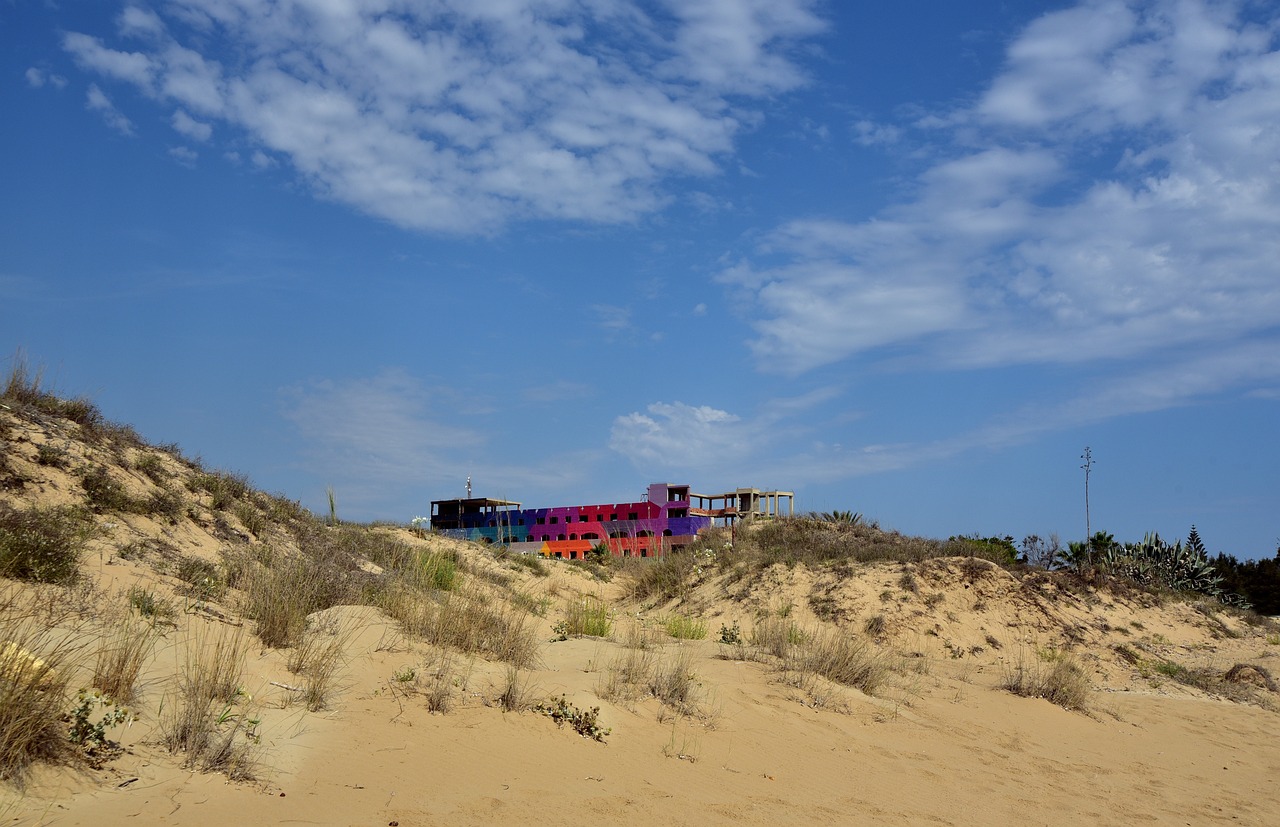
Learning by Doing
When we think about education, we often imagine classrooms filled with students diligently taking notes, their eyes glued to textbooks. However, John Dewey challenged this traditional approach with his revolutionary idea of . This concept is all about immersing students in active participation rather than passive absorption of information. Imagine a world where students don't just memorize facts but instead engage in hands-on experiences that ignite their curiosity and creativity. Dewey believed that true learning occurs when students can connect theory to practice, making their education relevant and meaningful.
Learning by doing encourages students to step outside the confines of the classroom and explore their surroundings. Whether it’s through science experiments, community service projects, or collaborative art installations, the emphasis is on experiential learning. For instance, consider a group of students tasked with growing a garden. Instead of reading about photosynthesis in a textbook, they get their hands dirty, planting seeds, watering them, and observing how they grow. This not only solidifies their understanding of biological processes but also teaches them responsibility and teamwork. The garden becomes a living laboratory, showcasing the beauty of learning in a dynamic environment.
Furthermore, this approach nurtures essential life skills. As students engage in projects, they learn to think critically and solve problems creatively. They face challenges that require them to adapt, innovate, and collaborate with their peers. For example, if a project hits a snag, students must brainstorm solutions together, fostering a sense of community and shared purpose. This is where Dewey's philosophy shines, as it emphasizes not just individual learning but also the importance of social interaction in the educational process.
Incorporating learning by doing into educational practices can also enhance retention rates. Research shows that students who engage in practical activities are more likely to remember what they've learned. When knowledge is tied to an experience, it transforms into a lasting memory. To illustrate this point, let’s look at a simple table comparing traditional learning methods with experiential learning:
| Aspect | Traditional Learning | Learning by Doing |
|---|---|---|
| Engagement Level | Passive | Active |
| Retention of Knowledge | Lower | Higher |
| Skill Development | Theoretical | Practical |
| Social Interaction | Minimal | High |
Ultimately, Dewey's idea of learning by doing is not just a method; it’s a transformative approach that reshapes how we view education. It invites students to take charge of their learning journey, making them not just recipients of knowledge but active participants in their education. So, next time you think about learning, remember that the most profound lessons often come from the experiences we engage in, not just the words we read. This philosophy not only prepares students academically but also equips them with the skills necessary to navigate the complexities of the world beyond the classroom.
- What is learning by doing? Learning by doing is an educational approach that emphasizes hands-on experiences and practical engagement in the learning process.
- How does learning by doing benefit students? It enhances retention, fosters critical thinking, and develops essential life skills through active participation.
- Can learning by doing be applied in all subjects? Yes, this approach can be integrated into various subjects, from science and math to arts and humanities.
- What role does collaboration play in learning by doing? Collaboration encourages teamwork, communication, and social responsibility among students, enhancing their overall learning experience.

learning by doing,
When we talk about learning by doing, we're diving into a concept that resonates deeply with the way we naturally acquire skills and knowledge. Think about it: when was the last time you truly understood something just by reading about it? Chances are, it was the hands-on experiences that left a lasting impression. John Dewey championed this idea, believing that the best way to learn is through active participation in the learning process. This approach transforms education from a passive experience into an engaging adventure where students become explorers in their own right.
Imagine a classroom where students aren't just sitting at their desks, staring at textbooks, but are actively involved in projects that require them to apply what they've learned. This could be anything from conducting science experiments to participating in community service. Learning by doing allows students to connect theoretical knowledge with real-world applications, making their education not only relevant but also exciting. It's like the difference between watching a cooking show and actually cooking a meal yourself; the latter is where the magic happens!
Moreover, this method fosters a deeper understanding of concepts. When students engage in practical tasks, they often encounter challenges that require critical thinking and problem-solving skills. For instance, a student learning about physics might build a simple machine, facing obstacles that push them to think creatively and apply their knowledge in innovative ways. This hands-on approach not only solidifies their understanding but also builds confidence in their capabilities.
In Dewey's view, education is not merely about memorizing facts; it's about experiencing the learning process. This experiential learning framework encourages students to reflect on their actions, analyze outcomes, and adjust their approaches as needed. Reflection is a crucial component here, as it allows learners to internalize their experiences and derive meaningful insights. For example, after completing a group project, students might discuss what worked well, what didn't, and how they can improve next time. This cycle of action and reflection is what truly solidifies learning.
To illustrate the impact of this approach, consider the following table that outlines some key benefits of learning by doing:
| Benefit | Description |
|---|---|
| Enhanced Engagement | Students are more motivated and interested when they actively participate in their learning. |
| Improved Retention | Hands-on experiences lead to better memory retention compared to passive learning methods. |
| Development of Critical Thinking | Students learn to analyze situations, make decisions, and solve problems effectively. |
| Real-World Application | Students can see the relevance of their studies in everyday life, bridging the gap between theory and practice. |
In conclusion, learning by doing is not just a catchy phrase; it's a vital educational philosophy that encourages active participation, reflection, and real-world application. Dewey's insights remind us that education should be an immersive experience, one that prepares students not just to pass tests, but to thrive in a complex and dynamic world. So, the next time you find yourself in a learning environment, remember: the more you engage, the more you'll grow!
- What is the main idea behind learning by doing? It emphasizes active participation and hands-on experiences as essential for effective learning.
- How does experiential learning benefit students? It enhances engagement, retention, and critical thinking skills, making education more relevant.
- Can learning by doing be applied in all subjects? Absolutely! This approach can be adapted to various disciplines, from science to arts.
- How can teachers implement this method in the classroom? Teachers can design projects, experiments, and collaborative tasks that encourage students to actively participate.

which underscores the necessity of practical engagement in education, promoting deeper understanding and retention of knowledge among students.
This article explores the core principles of American pragmatism and how John Dewey's philosophies have shaped modern educational practices, emphasizing experiential learning and the importance of community in the educational process.
An overview of pragmatism as a philosophical movement, detailing its origins and key contributors, including Charles Sanders Peirce and William James, and how these ideas laid the groundwork for Dewey's educational theories.
A deep dive into Dewey's educational philosophy, focusing on his belief in education as a social process and the importance of learning through experience in fostering critical thinking and problem-solving skills.
Examining Dewey's concept of experiential learning, which emphasizes hands-on experiences and real-world applications in education, allowing students to engage actively with their learning environments.
Learning by doing is not just a catchy phrase; it embodies the very essence of practical engagement in education. Dewey believed that when students actively participate in their learning through tangible experiences, they not only grasp concepts more effectively but also retain that knowledge longer. This principle underscores the necessity of practical engagement in education, promoting a deeper understanding that goes beyond rote memorization. Imagine trying to learn how to ride a bike by merely reading about it; it’s the actual experience of balancing, pedaling, and steering that transforms knowledge into skill. Similarly, in an educational context, when students are involved in hands-on activities—whether it's conducting science experiments, engaging in group projects, or participating in community service—they develop a richer, more nuanced understanding of the subject matter. This active participation fosters a sense of ownership over their learning, making the process not only more enjoyable but also more impactful.
Discussing the role of reflection in experiential learning, highlighting how critical self-reflection fosters personal growth and enhances the learning experience for students.
Analyzing Dewey's views on the relationship between democracy and education, emphasizing the role of schools in preparing individuals for active participation in democratic society.
Investigating how Dewey emphasized the importance of community in education, advocating for collaborative learning environments that foster social responsibility and collective problem-solving among students.
Highlighting the significance of collaborative learning environments in Dewey's philosophy, showcasing how teamwork and peer interaction enhance the educational experience and prepare students for real-world challenges.
Exploring the concept of social responsibility in education, as proposed by Dewey, and how it encourages students to engage with their communities and contribute positively to society.
- What is American Pragmatism?
American Pragmatism is a philosophical movement that emphasizes the practical application of ideas and the importance of experiential learning. - How did John Dewey influence education?
Dewey's philosophies emphasized experiential learning, critical thinking, and the role of education in fostering a democratic society. - What is experiential learning?
Experiential learning is a process where students learn through hands-on experiences and real-world applications, promoting deeper understanding. - Why is community important in education?
Dewey believed that community fosters collaboration, social responsibility, and prepares students for active participation in society.
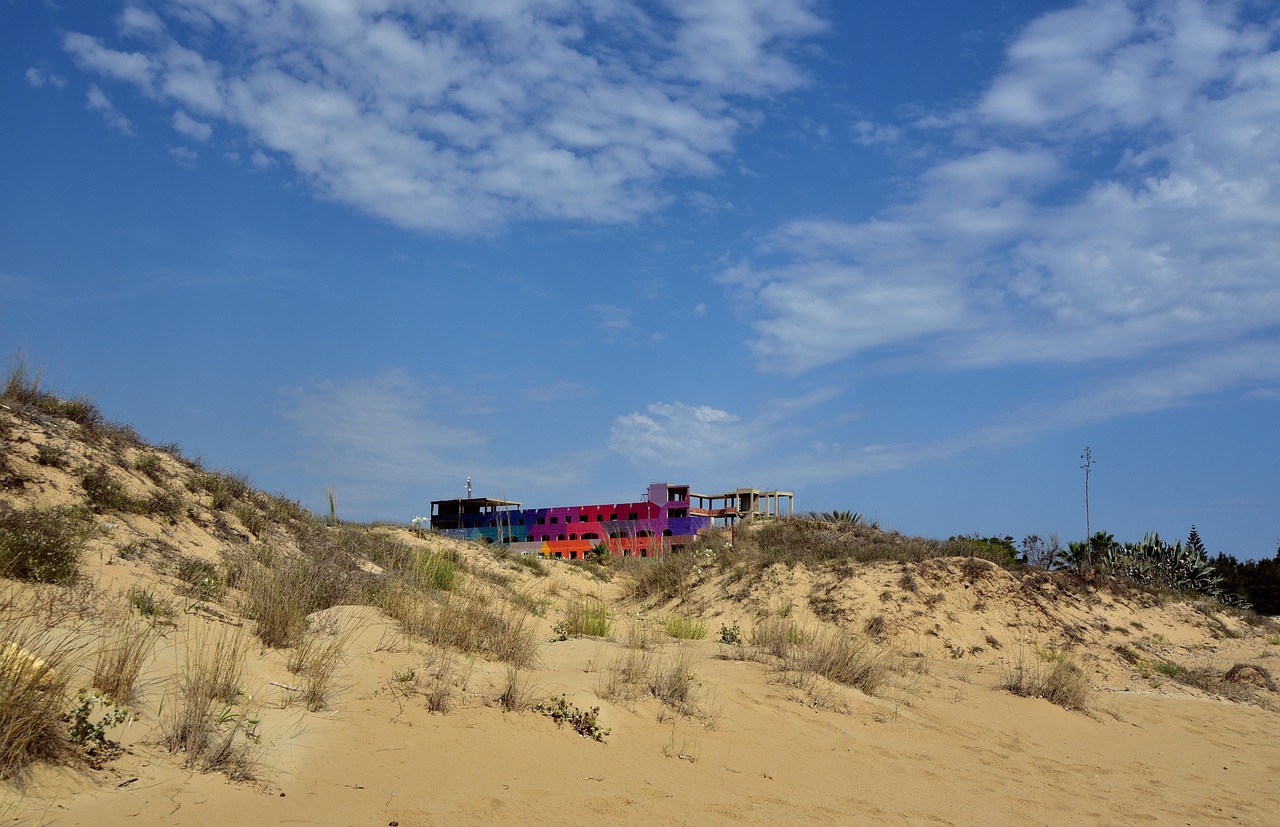
Reflection and Growth
In the realm of education, reflection is not just a passive activity; it is an essential component of the learning process that fosters personal growth and deeper understanding. John Dewey championed this idea, believing that for students to truly grasp what they learn, they must engage in a cycle of action and reflection. This means that after participating in an experience, whether it be a classroom project, a community service activity, or a hands-on experiment, students should take the time to think critically about what they did, how they felt, and what they learned. This reflective practice allows them to connect theory with practice, transforming mere experiences into profound learning moments.
So, how does this process of reflection translate into growth? When students reflect on their experiences, they are not only analyzing their actions but also considering the implications of those actions. This leads to several key benefits:
- Enhanced Critical Thinking: By evaluating their experiences, students learn to approach problems from various angles, developing their critical thinking skills.
- Increased Self-Awareness: Reflection encourages students to understand their strengths and weaknesses, leading to a more profound sense of self-awareness.
- Improved Problem-Solving Skills: Reflective practices help students identify what worked and what didn’t, enabling them to develop better strategies for future challenges.
Moreover, Dewey believed that reflection is not a solitary activity. It thrives in a collaborative environment where students can share their thoughts and insights with peers. Group discussions, peer feedback, and collaborative projects provide opportunities for students to engage in collective reflection, enriching their learning experience. Imagine a classroom where students come together to discuss their project outcomes, sharing what they learned and how they might approach similar tasks differently in the future. This not only enhances their educational journey but also builds a sense of community and shared responsibility.
In essence, the act of reflecting on experiences is akin to polishing a gem. Each time a student reflects, they uncover new facets of understanding, making their knowledge more valuable and multifaceted. Dewey’s emphasis on reflection in education serves as a reminder that learning is not a destination but a journey—one that is enriched through thoughtful consideration and dialogue. As students engage in this reflective practice, they not only grow academically but also develop as individuals who are prepared to navigate the complexities of life beyond the classroom.
Q: Why is reflection important in education?
A: Reflection is crucial because it helps students connect their experiences with theoretical knowledge, enhancing their critical thinking and problem-solving skills.
Q: How can teachers encourage reflection among students?
A: Teachers can promote reflection by incorporating activities such as journaling, group discussions, and feedback sessions that allow students to express their thoughts and insights.
Q: What role does collaboration play in reflection?
A: Collaboration fosters a richer reflective experience as students share diverse perspectives, leading to deeper understanding and community building.

Democracy and Education
John Dewey believed that education is not just about acquiring knowledge; it's fundamentally about preparing individuals for active participation in a democratic society. He posited that schools should serve as miniature communities where students learn not only the academic subjects but also the values and practices essential for democracy. But what does this mean in practical terms? Well, Dewey argued that education should foster critical thinking, open dialogue, and a sense of social responsibility among students. This creates a culture where students aren’t just passive recipients of information but active contributors to their learning and their communities.
At the heart of Dewey's philosophy is the idea that democracy is a way of life, and education plays a crucial role in nurturing that way of life. Schools, in Dewey's view, should be places where students learn to collaborate, respect differing viewpoints, and engage in constructive discourse. This is crucial because, in a democracy, the ability to communicate and work with others is paramount. Dewey emphasized that when students engage in discussions, debates, and group projects, they are not just learning about democracy; they are practicing it. They are developing the skills necessary to navigate the complexities of a democratic society.
Moreover, Dewey argued that education should not be isolated from the community. Instead, it should be intertwined with the social fabric of the community, allowing students to see the relevance of their education in real-world contexts. This connection helps students understand their role within a larger society and fosters a sense of belonging and responsibility. Schools can initiate programs that encourage students to participate in community service, civic engagement, and local governance. By doing so, students learn firsthand the importance of contributing to their communities and the impact of collective action.
In Dewey's ideal educational framework, the relationship between democracy and education is symbiotic. Schools cultivate democratic values, and in return, these values help to shape the educational environment. This leads to a more engaged citizenry, equipped to tackle societal challenges. It’s about creating a cycle of learning and participation that reinforces the principles of democracy.
To summarize Dewey's perspective on democracy and education, we can look at several key points:
- Active Participation: Education should encourage students to engage actively with their peers and their communities.
- Critical Thinking: Students should be taught to think critically and analyze different viewpoints.
- Social Responsibility: Education should instill a sense of duty towards the community and society at large.
- Collaborative Learning: Schools should promote teamwork and collaboration as essential skills for democratic engagement.
In conclusion, Dewey's vision of education goes beyond the classroom. It extends into the heart of democracy itself, emphasizing that education is a powerful tool for shaping not just informed individuals, but engaged citizens ready to contribute to the democratic process.
- What is John Dewey's main contribution to education? Dewey's main contribution is his focus on experiential learning and the belief that education should prepare individuals for active participation in a democratic society.
- How does Dewey connect democracy and education? Dewey connects democracy and education by arguing that schools should foster critical thinking, collaboration, and social responsibility, preparing students to engage actively in their communities.
- What role does community play in Dewey's educational philosophy? Community plays a crucial role by providing real-world contexts for learning, encouraging students to see their education's relevance and fostering a sense of belonging and responsibility.

The Role of Community in Education
John Dewey, a pivotal figure in American pragmatism, believed that education is not just a solitary journey of individual learning but a collective endeavor that thrives within a vibrant community. He argued that schools should serve as a microcosm of society, where students learn not only academic skills but also the essential values of collaboration and social responsibility. This perspective challenges the traditional notion of education as a mere transfer of knowledge from teacher to student, instead promoting a dynamic environment where learners engage with one another and their surroundings.
In Dewey's view, the community plays a crucial role in shaping the educational experience. When students are encouraged to participate in their local communities, they develop a sense of belonging and responsibility. This connection fosters a deeper understanding of social issues and cultivates a desire to contribute positively to society. For example, students who engage in community service projects often report feeling more connected to their peers and more committed to their educational journey. This sense of community can also enhance students' motivation and engagement, as they see the direct impact of their efforts.
Dewey emphasized that education should not be an isolated experience but rather a collaborative process that prepares students for real-world challenges. In his ideal educational setting, students work together on projects, share ideas, and learn from each other. This collaborative learning environment allows for diverse perspectives to be heard, fostering critical thinking and problem-solving skills. The ability to work well with others is essential in today’s interconnected world, and Dewey’s philosophy encourages the development of these skills from a young age.
Moreover, Dewey believed that schools should actively involve families and community members in the educational process. By creating partnerships between schools and communities, educators can enrich the learning experience and provide students with valuable resources and support. This collaboration can take many forms, such as:
- Inviting community leaders to speak in classrooms
- Organizing field trips to local businesses or cultural institutions
- Encouraging parental involvement in school activities and decision-making
These interactions not only enhance the curriculum but also help students see the relevance of their education in the broader context of their community. When students understand how their learning applies to real-life situations, they are more likely to retain information and develop a lifelong love for learning.
In summary, Dewey's emphasis on the role of community in education highlights the interconnectedness of learning and social engagement. By fostering a sense of community within educational settings, we can prepare students to become active, informed citizens who are equipped to tackle the challenges of the modern world. This approach not only benefits students but also strengthens the fabric of society as a whole.
- Why is community involvement important in education?
Community involvement enriches the educational experience, providing students with real-world applications of their learning and fostering a sense of belonging. - How can schools encourage community engagement?
Schools can invite local leaders to participate in discussions, organize community service projects, and create partnerships with local organizations. - What are the benefits of collaborative learning?
Collaborative learning enhances critical thinking, promotes teamwork, and prepares students for real-world challenges by allowing them to learn from diverse perspectives.

Collaborative Learning Environments
In today's fast-paced world, the ability to work effectively with others is more crucial than ever. John Dewey recognized this necessity in his educational philosophy, advocating for that foster teamwork and peer interaction. Imagine a classroom where students aren't just passive recipients of knowledge but active participants in a shared journey of discovery. This approach not only makes learning more engaging but also prepares students for the complexities of real-world challenges.
Collaboration in education is about more than just group projects. It's about creating an atmosphere where students feel comfortable sharing their ideas, debating concepts, and learning from one another. Dewey believed that when students engage with their peers, they develop critical thinking skills and gain diverse perspectives that enrich their understanding. In essence, collaboration transforms the classroom into a vibrant community of learners, each contributing their unique insights.
Moreover, collaborative learning environments encourage students to take ownership of their education. When they work together, they learn to set goals, delegate tasks, and hold each other accountable. This sense of responsibility is vital, as it mirrors the dynamics of the workplace and society at large. Students not only learn academic content but also the soft skills necessary for success in any field, such as communication, empathy, and problem-solving.
To illustrate the impact of collaborative learning, consider the following table that highlights the key benefits:
| Benefit | Description |
|---|---|
| Enhanced Critical Thinking | Students learn to analyze and evaluate different viewpoints, fostering deeper understanding. |
| Improved Communication Skills | Working in groups helps students articulate their ideas clearly and listen actively. |
| Increased Engagement | Collaborative tasks often lead to higher motivation and interest in the subject matter. |
| Social Skills Development | Students build relationships and learn to work with diverse groups of people. |
In summary, Dewey's emphasis on collaborative learning environments is not just a pedagogical strategy; it's a philosophy that prepares students for life beyond the classroom. By fostering teamwork and social interaction, educators can create a dynamic learning experience that equips students with the skills they need to thrive in a collaborative world. After all, in a society where we often rely on teamwork to solve complex problems, the ability to collaborate effectively is invaluable.
- What is collaborative learning? Collaborative learning is an educational approach that involves groups of students working together to solve problems, complete tasks, or learn new concepts.
- How does collaborative learning benefit students? It enhances critical thinking, improves communication skills, increases engagement, and helps develop social skills.
- Can collaborative learning be implemented in online education? Yes, collaborative learning can be effectively facilitated through online platforms using discussion forums, group projects, and virtual meetings.

Social Responsibility in Education
John Dewey profoundly believed that education is not just about acquiring knowledge but also about cultivating a sense of social responsibility among students. He argued that schools should serve as microcosms of society, where students learn not only academic skills but also the importance of contributing positively to their communities. This perspective shifts the focus from individual achievement to collective well-being, emphasizing that education should prepare students to engage with and improve the world around them.
In Dewey's view, fostering social responsibility involves creating educational experiences that encourage students to think critically about social issues. For instance, when students participate in community service projects or engage in discussions about local challenges, they develop a deeper understanding of their roles as citizens. This hands-on approach allows them to see the direct impact of their actions, reinforcing the idea that they can be agents of change within their communities.
Moreover, Dewey advocated for collaborative learning environments where students work together to solve problems. By collaborating on projects that address real-world issues, students not only enhance their problem-solving skills but also learn the value of teamwork and empathy. This collaborative spirit is crucial in cultivating a sense of social responsibility, as it teaches students to appreciate diverse perspectives and work towards common goals.
To illustrate the concept of social responsibility in education, consider the following key components:
- Community Engagement: Encouraging students to participate in local initiatives fosters a connection to their community.
- Critical Thinking: Providing opportunities for students to analyze social issues enhances their ability to make informed decisions.
- Collaborative Projects: Working in groups on community-focused projects cultivates teamwork and social skills.
Ultimately, Dewey's emphasis on social responsibility in education serves as a reminder that learning extends beyond the classroom. It challenges educators to create environments that nurture not only intellectual growth but also a commitment to making a difference in society. By instilling these values in students, we prepare them to become active, responsible members of their communities, ready to tackle the challenges of the future.
Q: What is social responsibility in education?
A: Social responsibility in education refers to the idea that schools should teach students the importance of contributing positively to their communities and society at large.
Q: How can schools promote social responsibility?
A: Schools can promote social responsibility by incorporating community service projects, encouraging critical discussions about social issues, and fostering collaborative learning environments.
Q: Why is social responsibility important for students?
A: Social responsibility is important because it helps students understand their role in society, encourages civic engagement, and prepares them to be active participants in a democratic society.
Frequently Asked Questions
- What is American pragmatism?
American pragmatism is a philosophical movement that emphasizes the practical application of ideas and the importance of real-world consequences in determining the truth. It originated in the late 19th century and was significantly shaped by thinkers like Charles Sanders Peirce, William James, and John Dewey, who expanded its principles into various fields, including education.
- How did John Dewey influence modern education?
John Dewey revolutionized education by advocating for experiential learning, where students learn through hands-on experiences rather than rote memorization. He believed that education should be a social process that fosters critical thinking and problem-solving skills, preparing students for active participation in a democratic society.
- What is experiential learning according to Dewey?
Dewey's concept of experiential learning highlights the significance of engaging with real-world situations to enhance understanding. He argued that learning is most effective when students actively participate in their education, allowing them to connect theoretical knowledge with practical applications.
- What does "learning by doing" mean?
"Learning by doing" is a principle championed by Dewey, emphasizing that students gain a deeper understanding of concepts when they actively engage in tasks and activities. This approach promotes retention of knowledge and encourages students to apply what they've learned in meaningful ways.
- How important is reflection in Dewey's educational philosophy?
Reflection plays a crucial role in Dewey's philosophy, as it allows students to critically analyze their experiences and learn from them. This process of self-reflection fosters personal growth, enhances the learning experience, and helps students develop a deeper understanding of their educational journey.
- What is the connection between democracy and education in Dewey's view?
Dewey believed that education is essential for a functioning democracy, as it prepares individuals to participate actively in society. He argued that schools should not only impart knowledge but also cultivate social responsibility and the skills necessary for democratic engagement.
- Why is community important in education according to Dewey?
Dewey emphasized the importance of community in education, advocating for collaborative learning environments where students work together to solve problems. He believed that such interactions foster social responsibility and help students understand their roles within their communities.
- What are collaborative learning environments?
Collaborative learning environments are settings where students engage in teamwork and peer interaction to enhance their educational experience. Dewey believed these environments prepare students for real-world challenges, as they learn to communicate, cooperate, and think critically in group situations.
- How does Dewey's philosophy encourage social responsibility in education?
Dewey's philosophy encourages social responsibility by urging students to engage with their communities and contribute positively to society. He believed that education should instill a sense of duty and awareness of social issues, empowering students to become active and responsible citizens.








